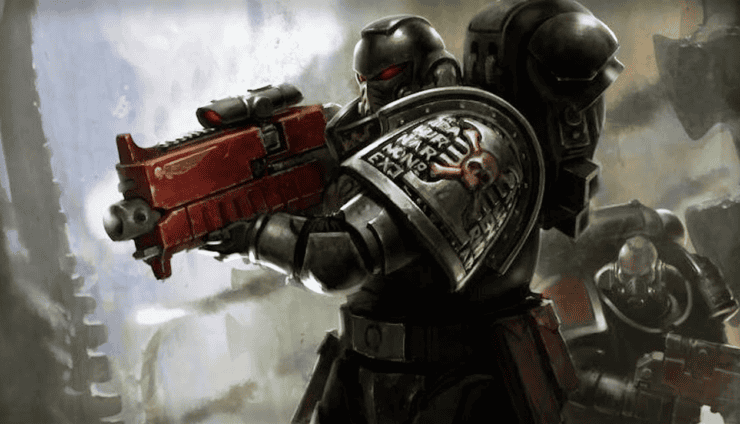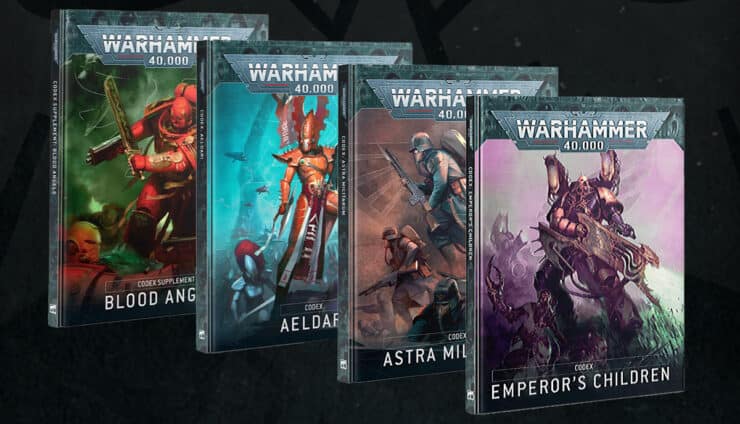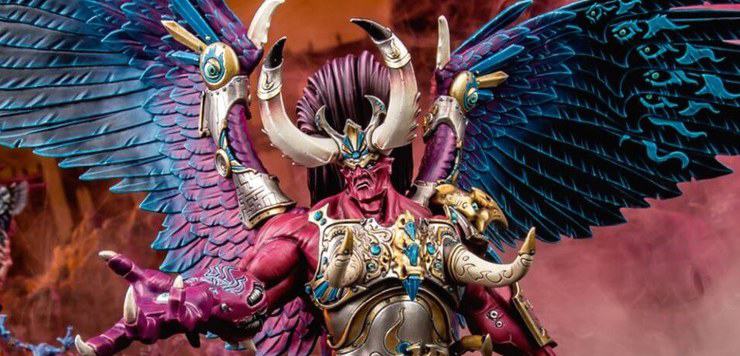 How Magnus the Red’s choices and betrayal (and fall to Tzeentch) of the Emperor led to Prospero’s burning and a rift that defined Warhammer 40k, Chaos Space Marines, and Horus Heresy.
How Magnus the Red’s choices and betrayal (and fall to Tzeentch) of the Emperor led to Prospero’s burning and a rift that defined Warhammer 40k, Chaos Space Marines, and Horus Heresy.
Updated January 9th, 2025, by Rob Baer with new information and links to relevant content.
Imagine this: a relationship so epic, so fraught with drama, it makes Shakespeare’s tragedies look like sitcom material. Magnus the Red, the towering psychic powerhouse with the best hair in the galaxy, versus the Emperor, humanity’s ultimate dad figure. What could possibly go wrong? Spoiler alert: everything.
From fateful decisions to cataclysmic betrayals, their story escalates into one of the defining moments of Warhammer 40k lore. It’s not just about the fall of Prospero or who threw the first metaphorical punch—it’s about trust, ambition, and the cosmic fallout when gods and primarchs clash. Let’s untangle how this legendary falling-out turned into one of the most explosive rivalries in the galaxy.
Magnus the Red vs. the Emperor: A Relationship of Betrayal
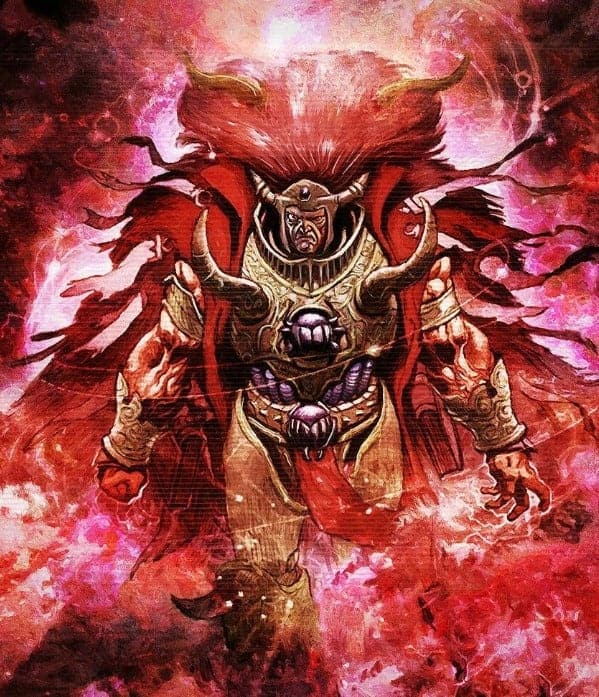
His infamous fallout with the Emperor of Mankind shaped not only his fate but also the trajectory of the Imperium itself. Let’s unpack how Magnus went from favored son to Chaos Space Marine icon.
The Betrayal During the Horus Heresy
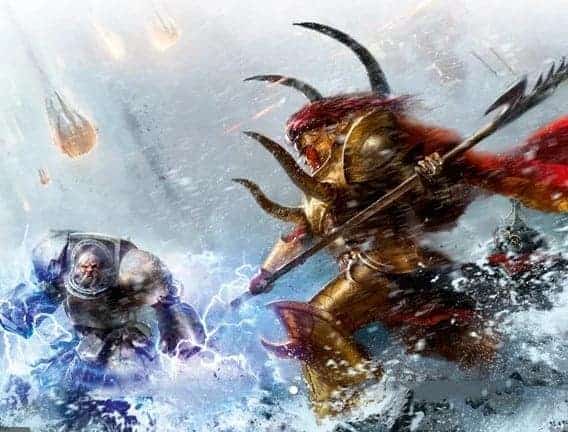
Guided—or perhaps manipulated—by Tzeentch, the Chaos God of Change, Magnus believed he could use his abilities to benefit humanity. Unfortunately, his actions tore apart the Emperor’s plans for the Webway Project, a critical initiative meant to protect humanity from Chaos.
The Emperor, who had forbidden the use of sorcery, saw Magnus’s actions as a betrayal. While Magnus believed he was warning his father about Horus’s impending treachery, his psychic communication shattered the Emperor’s secret Webway gate.
The destruction invited Chaos Daemons into the heart of Terra, an event the Emperor could not overlook. Magnus’s attempt to warn the Emperor wasn’t just misunderstood—it was catastrophic.
Magnus’s Warnings About Horus
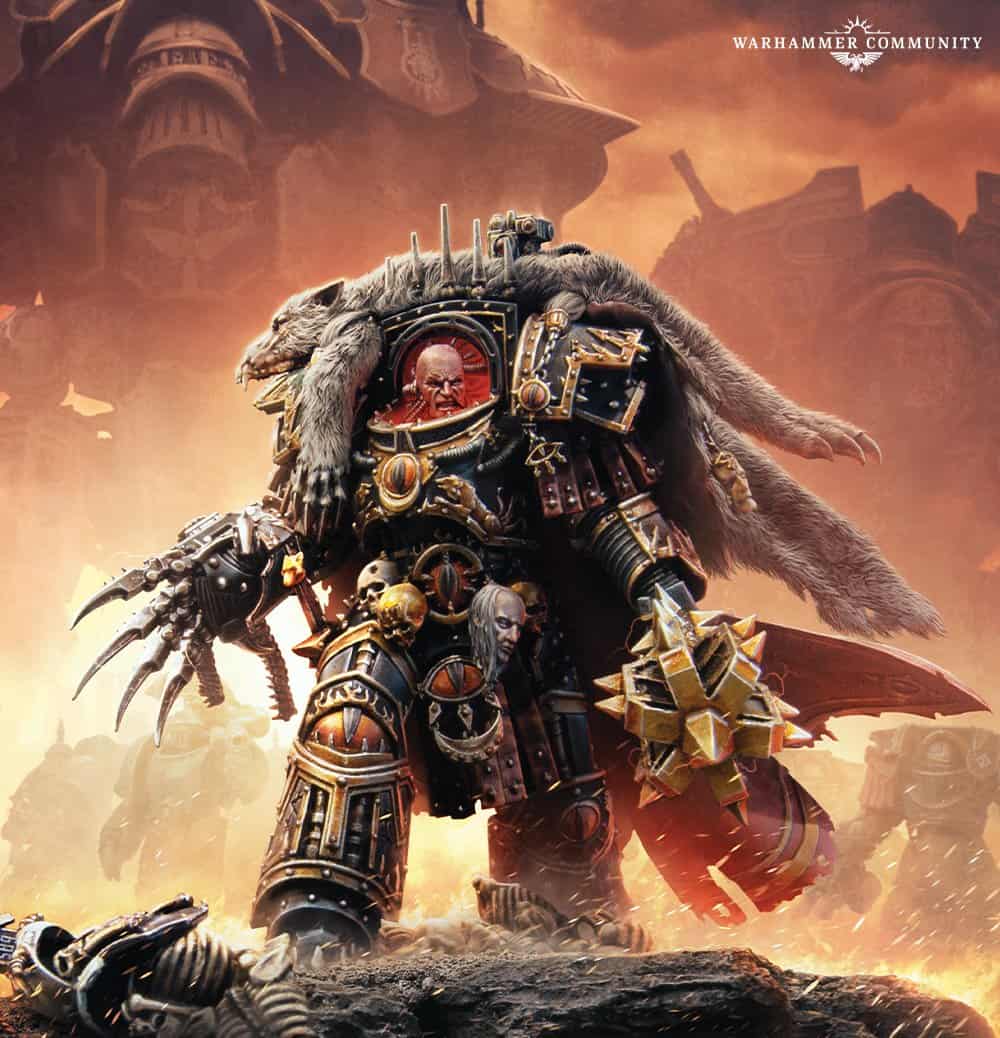
Horus, meanwhile, capitalized on the Emperor’s growing mistrust of Magnus. The Warmaster painted Magnus as a reckless Primarch whose actions endangered the Imperium. While Horus orchestrated his rebellion, Magnus unknowingly handed his enemies the perfect opportunity to isolate him from his father.
The Emperor’s Reaction to Magnus’s Actions
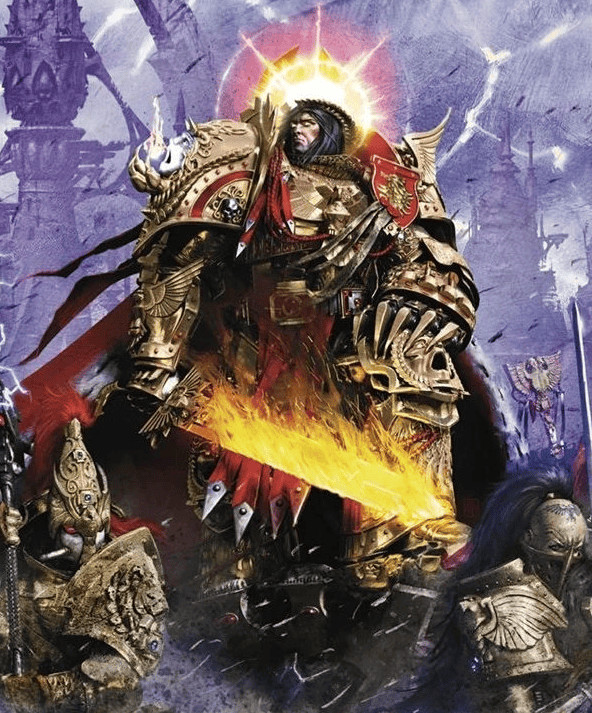
Magnus, broken by his father’s perceived betrayal, surrendered to despair. Turning to Tzeentch, he embraced the Chaos God’s power, transforming both himself and his Legion into Chaos Space Marines. This fateful decision solidified his role in the Horus Heresy and his place in Warhammer lore as one of the Imperium’s greatest tragedies.
Magnus the Red: The Psyker Primarch Who Shook the Galaxy
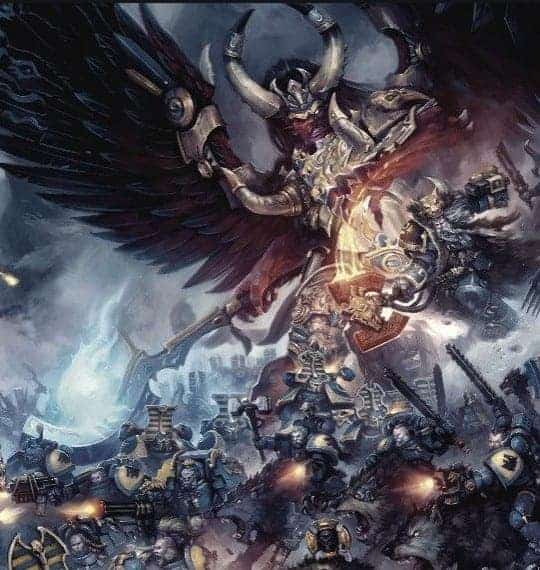
A Primarch Unlike Any Other
Magnus wasn’t just a psyker; he was the psyker. His connection to the Warp and his ability to wield it with precision set him apart from his fellow Primarchs. This made him a favorite in Tzeentch’s schemes long before Magnus even knew what Chaos truly was. Tzeentch, the Chaos God of Change, thrives on manipulation and ambition—traits that Magnus unknowingly embodied.
Leading the Thousand Sons, a Legion of similarly gifted psykers, Magnus sought to use his abilities for the betterment of humanity. His fascination with forbidden knowledge was both his strength and his undoing. From Rubric Marines to the art of sorcery, everything Magnus touched carried the potential for greatness and disaster.
The Emperor: Architect of Magnus’s Fate
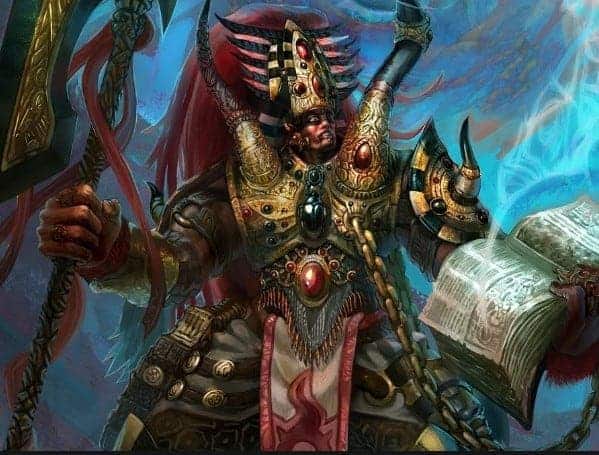
The Emperor’s role in Magnus’s downfall is a point of debate in Warhammer lore. While Magnus was warned not to use sorcery, his father’s refusal to fully explain the dangers of Chaos left room for misinterpretation. When Magnus shattered the Emperor’s secret Webway gate during his desperate psychic warning about Horus’s betrayal, it wasn’t just a catastrophic mistake—it was the beginning of a bitter, galaxy-spanning conflict.
Magnus and the Horus Heresy
The Horus Heresy turned the Imperium into a battlefield of betrayal and ambition, and Magnus found himself at its center. His attempt to warn the Emperor about Horus’s descent into Chaos wasn’t met with gratitude but with wrath. The Emperor, convinced Magnus’s actions were willful defiance, ordered the Space Wolves to bring him to Terra.
Led by Leman Russ, the assault on Prospero, Magnus’s homeworld, was brutal. The Burning of Prospero didn’t just destroy a planet—it shattered Magnus’s faith in his father. Broken and desperate, Magnus turned to Tzeentch, solidifying his place among the Chaos Space Marines and transforming his Legion into the Thousand Sons we know today.
Magnus the Red in 30k
In the 30k era, Magnus the Red was at his peak. As one of the key players during the Horus Heresy, his actions were pivotal in shaping the Imperium’s fate. This was the Magnus who still believed in his father’s vision—before betrayal and the Burning of Prospero changed everything.
Fans of Horus Heresy narratives know 30k Magnus as a tragic figure. He wasn’t evil; he was a genius blinded by his own ambition. His time in the 30k timeline is rich with stories of loyalty, heartbreak, and the first steps toward Chaos.
Magnus the Red and the Emperor: A Bond Built on Power and Ambition
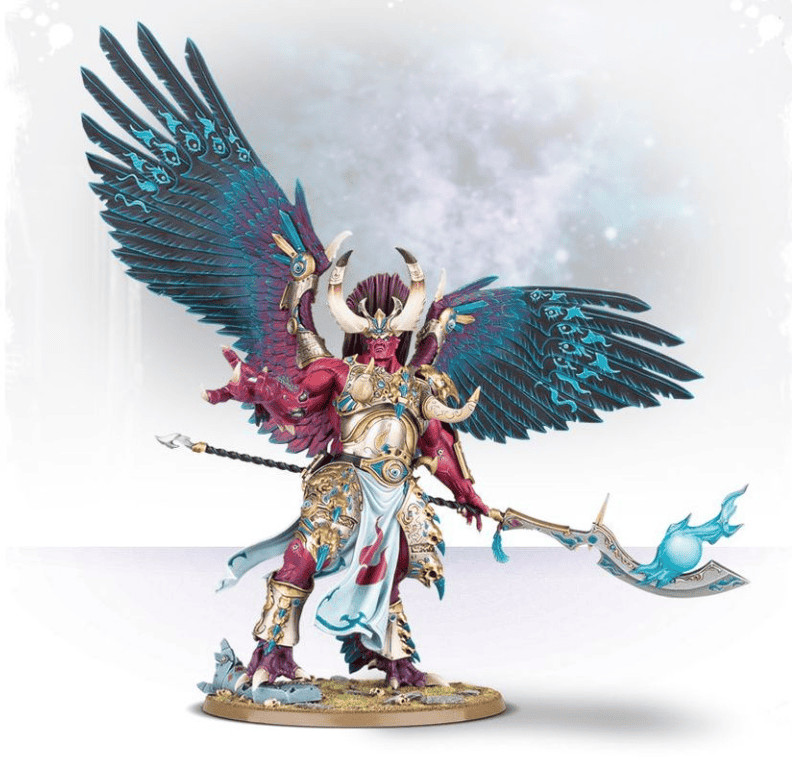
The Emperor, a figure of immense power and vision, saw in Magnus a son whose potential could help shape the galaxy. Their connection wasn’t just based on genetics; it was built on shared ideals and mutual respect—at least at the start.
Discovery of Magnus by the Emperor
Magnus’s discovery wasn’t just another day of the Great Crusade. Landing on Prospero, a world ravaged by Warp storms and riddled with sorcerers, Magnus had carved out a life for himself among the scholars and mystics.
Unlike many of his siblings, who had been molded by their planets into warriors or rulers, Magnus had developed an insatiable thirst for knowledge. He mastered psychic powers far beyond anything his brothers could dream of, making him a perfect match for the Emperor’s grand designs.
When the Emperor arrived, he immediately recognized Magnus’s unique gifts. Here was a Primarch not just destined to lead a Legion of Space Marines but one who could unlock the secrets of the Warp and help humanity transcend its limitations. Magnus, for his part, revered the Emperor as a godlike figure. This was a meeting of minds and power, a partnership poised to shape the Imperium’s future.
Initial Bond and Shared Aspirations
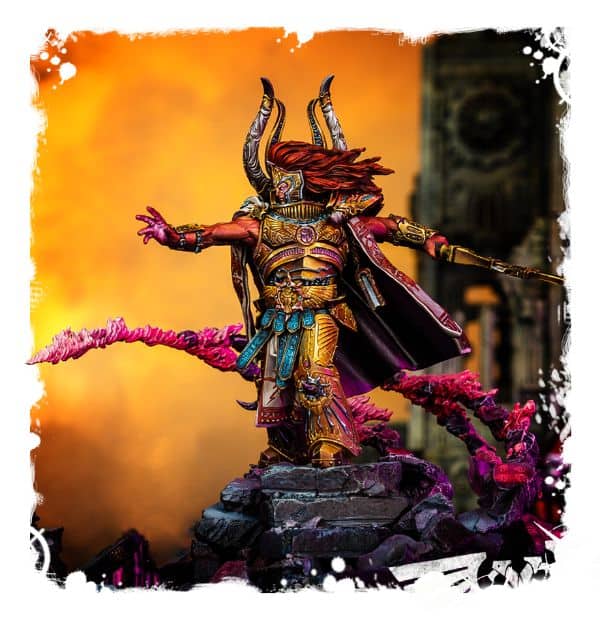
For Magnus, the Emperor wasn’t just a leader—he was a teacher and a father figure. Magnus sought to please him, striving to push the boundaries of what psykers could achieve. Whether experimenting with Warp energies or honing the abilities of his Thousand Sons, Magnus believed he was fulfilling his father’s ultimate goals.
But there was a fatal flaw in their relationship: the Emperor’s mistrust of the Warp. While Magnus saw psychic power as a tool for enlightenment, the Emperor viewed it as a dangerous force that could invite Chaos into the Imperium. This ideological divide was a ticking time bomb.
Magnus’s thirst for knowledge, combined with the Emperor’s reluctance to share the full truth about the Warp and its dangers, laid the groundwork for their eventual fallout. Though they shared aspirations for humanity’s greatness, their approaches to achieving it were fundamentally at odds. Magnus’s brilliance and ambition were both his greatest assets and his greatest vulnerabilities.
Magnus the Red and the Great Crusade: A Collision of Ideals
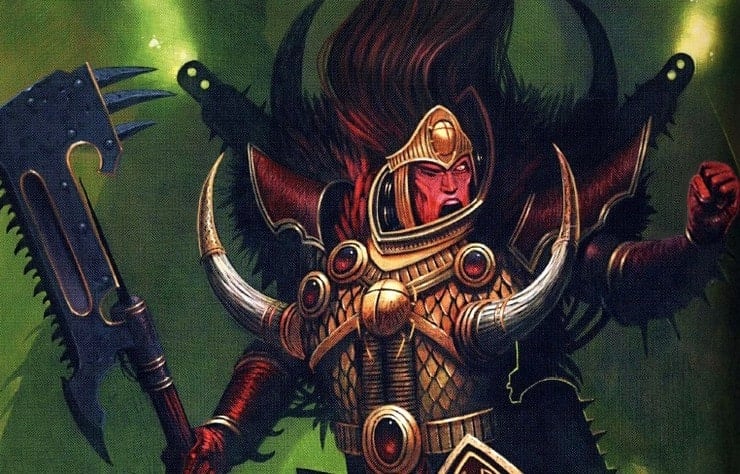
Among them, Magnus the Red stood out—not just for his size or crimson complexion but for his psychic prowess. Yet, as much as Magnus contributed to the Crusade’s success, his philosophical clashes with the Emperor would ultimately lead to one of the galaxy’s most devastating betrayals.
Magnus’s Role in the Crusade
Magnus wasn’t just another Primarch leading a Legion of Space Marines. His Legion, the Thousand Sons, was defined by their psychic abilities, a reflection of Magnus’s own immense talents. While the other Legions fought with sheer force, the Thousand Sons brought sorcery to the battlefield, blending raw power with calculated precision.
Magnus believed that knowledge—particularly the knowledge of the Warp—was humanity’s key to survival. To him, the Warp wasn’t just a source of danger but a resource that, when understood and controlled, could elevate humanity to new heights. His mastery of psychic powers made him a powerful asset during the Great Crusade, and he became a symbol of what humanity could achieve if it embraced its potential.
But Magnus’s fascination with the Warp wasn’t without its risks. His Legion’s reliance on psychic powers didn’t sit well with many of his brothers or even the Emperor himself. Where Magnus saw opportunity, others saw danger.
Magnus the Red’s Height
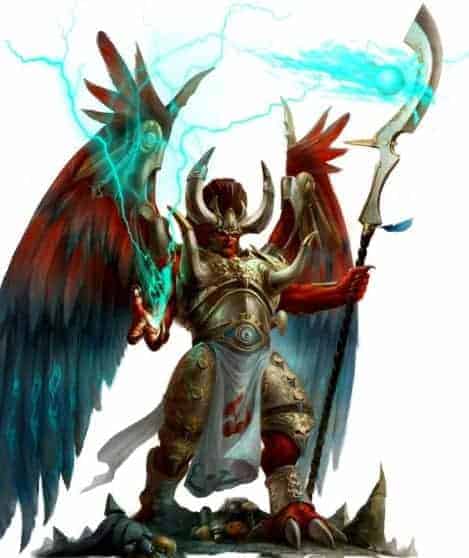
In numbers? Magnus is estimated to be about 14 feet tall. That’s before he went full Daemon Primarch, by the way. Now? He’s even bigger, because why wouldn’t Chaos go for maximum intimidation?
Philosophical Differences with the Emperor
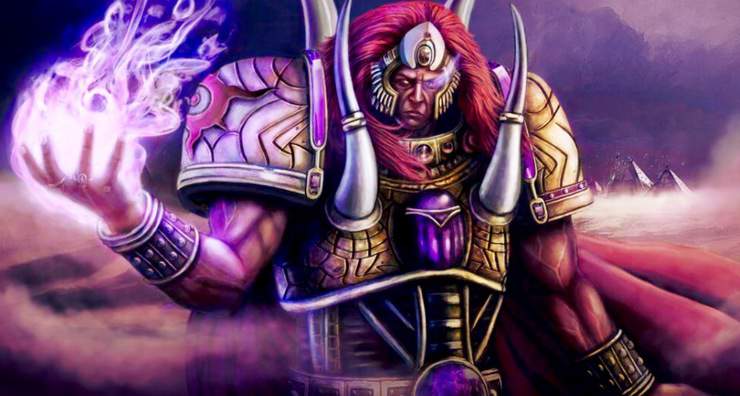
He viewed the Warp as a volatile and corrupting force, one that could not be tamed without risking the Imperium’s future. For him, the use of psychic powers needed to be tightly controlled, and sorcery—any form of Warp manipulation outside sanctioned practices—was strictly forbidden.
Magnus, on the other hand, believed this was shortsighted. To him, the Warp was dangerous only when misunderstood. He saw himself and his Legion as pioneers, pushing humanity toward enlightenment by mastering its hidden potential. This difference in perspective wasn’t just academic; it set the stage for an eventual tragedy.
The Emperor’s refusal to share the full truth about Chaos with Magnus only widened the gap between them. While the Emperor sought to shield his son from the corrupting influence of Tzeentch and the other Chaos Gods, Magnus interpreted this secrecy as a lack of trust. The cracks in their relationship grew wider as Magnus’s experiments with the Warp became more daring.
In the Great Crusade, Magnus’s brilliance and ambition helped the Imperium conquer countless worlds. Yet his philosophical clashes with the Emperor cast a shadow over his achievements.
The seeds of betrayal were sown not in one fateful moment but in the long, slow erosion of trust and understanding between father and son. This rift would have far-reaching consequences, not just for Magnus and the Thousand Sons but for the Imperium itself.
Magnus the Red in 40k
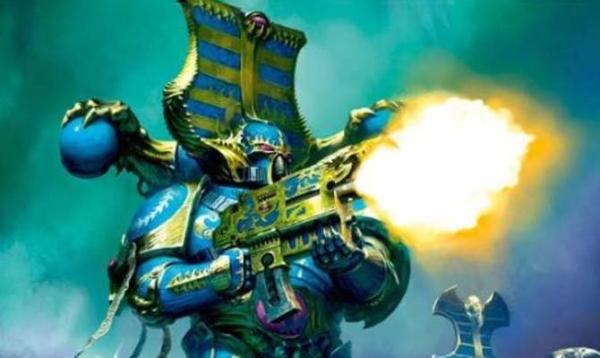
On the tabletop, Magnus the Red is a powerhouse. His model is one of the most visually stunning in the game, showcasing his transformation into a Chaos monstrosity. Whether you love him for his lore or his gameplay impact, Magnus remains a centerpiece of Warhammer 40k
The Sorcerer’s Pursuit: Magnus the Red’s Tragic Journey
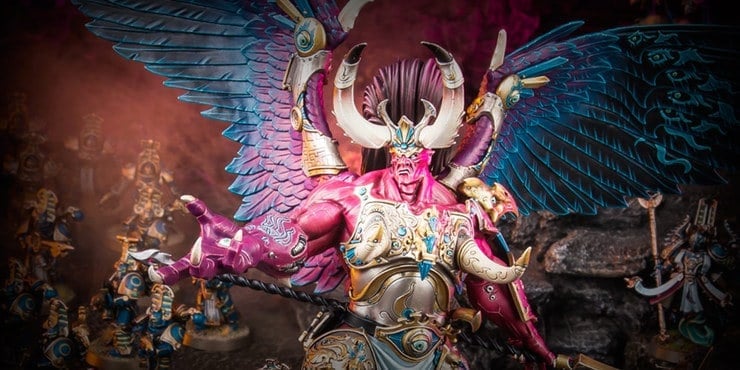
With his piercing intellect and unmatched mastery of the Warp, Magnus was a Primarch driven by a relentless thirst for knowledge. But as with any ambitious genius, his story is a cautionary tale of what happens when brilliance meets hubris.
Magnus’s Obsession with Knowledge
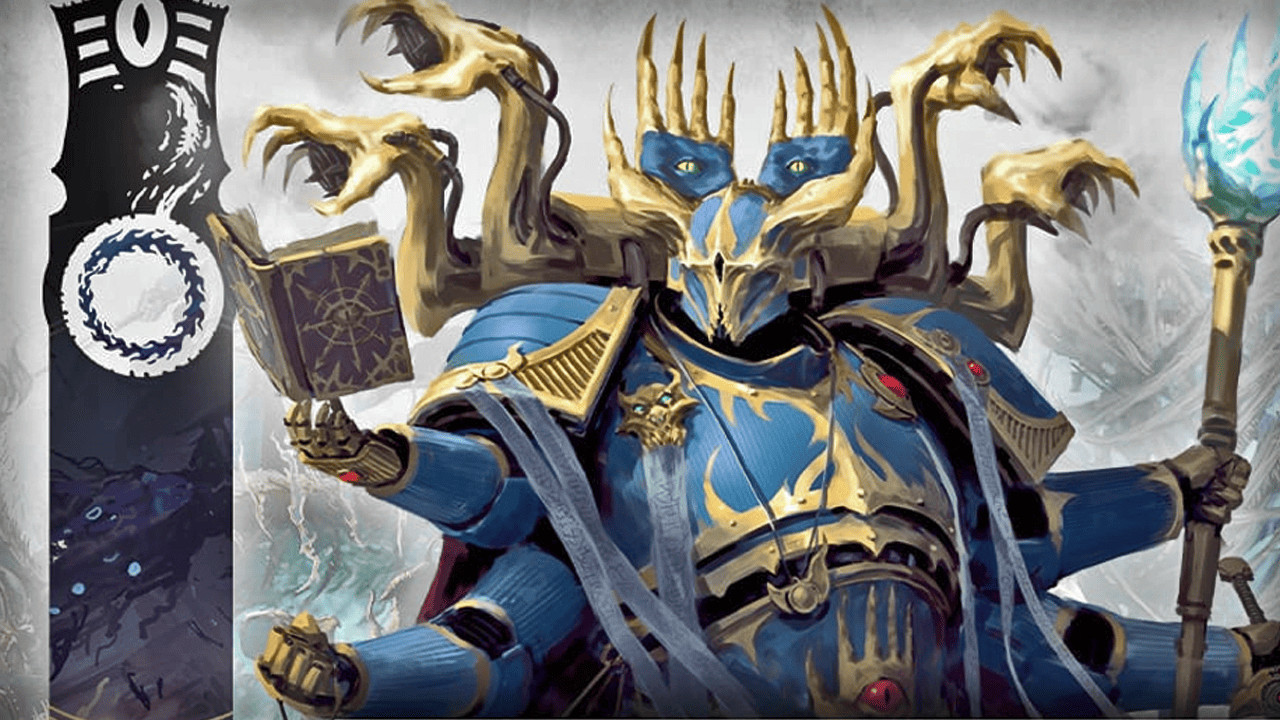
But knowledge, especially the kind found in the Warp, comes with a price. Magnus wasn’t naive; he understood the dangers. He just thought he could outsmart them. His obsession with mastering the Warp led him down a path few dared to tread, one filled with secrets that whispered to him in the voice of Tzeentch, the Chaos God of Change.
Tzeentch wasn’t just lurking in the shadows—he was actively grooming Magnus, feeding his hunger for forbidden truths. And Magnus, with all his brilliance, didn’t see the trap being laid. He saw himself as a pioneer, blazing a trail for humanity to unlock its psychic potential. His Rubric Marines, his experiments with sorcery, and his constant pursuit of higher knowledge made him a figure of awe and fear among the Primarchs.
Magnus the Red in MTG
Yes, Magic: The Gathering fans, Magnus the Red got his moment in the spotlight with his own card! As part of the Universes Beyond: Warhammer 40k set, Magnus the Red brings his psychic might to the tabletop in a way that screams Thousand Sons.
The card itself is as flashy as you’d expect. With a high mana cost and abilities that nod to Magnus’s love for spellcasting, it’s a perfect addition for anyone wanting to dominate their MTG game with a little Chaos flair. Pair it with sorcery-heavy decks, and you’ll channel the Warp like a pro
The Burning of Prospero: A Galactic Tragedy

Events Leading to the Assault
Magnus the Red wasn’t trying to break the galaxy—he was trying to save it. When he discovered that Horus was turning to Chaos, he used his immense psychic abilities to send a warning directly to the Emperor. But in doing so, Magnus unknowingly shattered the Emperor’s secret Webway Project, an ambitious plan to create a safe passage through the Warp.
For the Emperor, this wasn’t just a mistake; it was outright rebellion. Magnus had violated a direct order to refrain from using sorcery, and the consequences were catastrophic. Instead of gratitude for the warning, Magnus received a death sentence.
This set the stage for one of the most infamous events in Warhammer lore: the Burning of Prospero. The Emperor sent the Space Wolves, led by Leman Russ, to bring Magnus to Terra to face judgment. Initially, this was supposed to be an arrest. But whispers from Chaos—and likely Tzeentch’s meddling—encouraged Russ to escalate the mission into a full-scale invasion.
The Role of the Space Wolves and Adeptus Custodes
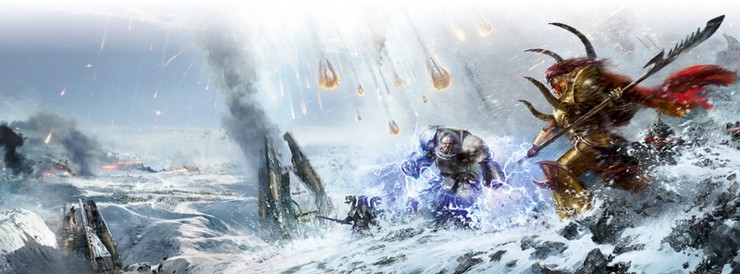
Russ wasn’t alone. The Adeptus Custodes, the Emperor’s elite guard, were sent to ensure the mission’s success. Their presence added an air of finality; this wasn’t just a punitive raid—it was an extermination. The Thousand Sons, despite their psychic brilliance, were no match for the combined might of the Space Wolves and the Custodes.
Prospero, once a shining beacon of knowledge and learning, became a warzone. The Thousand Sons fought valiantly, but their psyker-based tactics were overwhelmed by the sheer brutality of the Space Wolves. Rubric Marines, Ahriman, and even Magnus himself could only delay the inevitable.
As the planet burned, Magnus the Red made a fateful decision that would change all of 40k. Rather than surrender to the Emperor’s judgment, he turned to the very forces his father had warned against. In his desperation, he called upon Tzeentch, the Chaos God of Change, to save what was left of his Legion. This act marked Magnus’s final fall from grace, sealing his fate as a Daemon Primarch and aligning the Thousand Sons with the Chaos Space Marines.
The Burning of Prospero was more than just the destruction of a planet—it was the destruction of trust between father and son, between loyalty and rebellion.
Aftermath and Consequences: Magnus the Red’s Path to Chaos
The Burning of Prospero didn’t just destroy a planet—it shattered Magnus the Red’s faith in the Emperor and set the stage for his ultimate transformation in 40k. The fallout from that fateful conflict left scars not only on Magnus but also on his Legion, the Thousand Sons, forever binding their fate to Tzeentch and the Chaos Space Marines.
Magnus’s Transformation into a Chaos Space Marines Champion
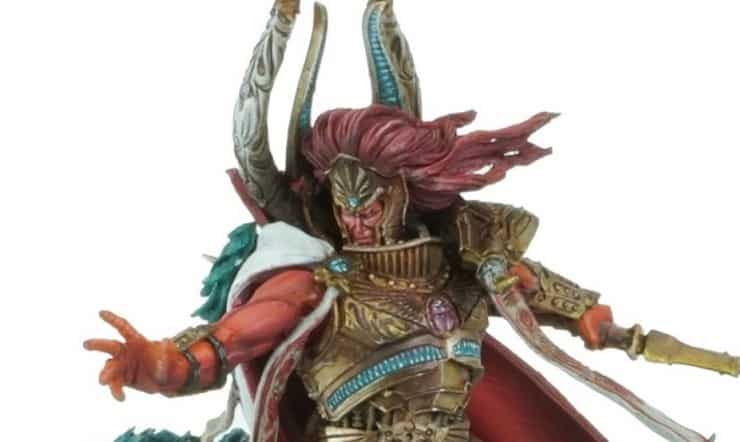
As Prospero burned and the Thousand Sons were on the brink of annihilation, Magnus made a desperate choice. He turned to the very entity his father had warned against—Tzeentch, the Chaos God of Change. This wasn’t an impulsive decision; it was the result of a broken trust and a deep sense of betrayal. Magnus saw the Emperor’s judgment as unfair and unforgiving, and in Tzeentch, he found a being that offered salvation—at a cost.
The moment Magnus accepted Tzeentch’s aid, he sealed his fate. His physical form was twisted into something otherworldly, transforming him into a Daemon Primarch. No longer bound by mortal constraints, Magnus became an eternal servant of Chaos, wielding immense power but forever tied to the manipulations of the Warp.
The Lasting Impact on the Thousand Sons
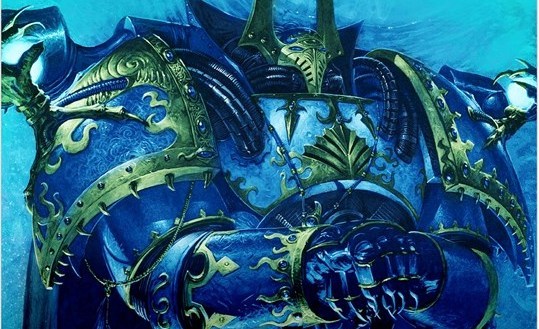
The Rubric of Ahriman, a desperate spell cast by Magnus’s chief sorcerer, was meant to save the Legion from the curse of mutation that plagued them after their turn to Chaos. Instead, it transformed the majority of the Thousand Sons into Rubric Marines—soulless, dust-filled suits of armor animated by sorcery. This act not only defined the Thousand Sons but also highlighted the tragic consequences of Magnus’s decisions.
Now, as one of Tzeentch’s most loyal champions, Magnus and his Legion serve as pawns in the grand schemes of the Chaos Gods. Their focus on sorcery and psychic power makes them a unique threat on the battlefield, with Magnus himself acting as a living embodiment of Tzeentch’s will.
The Thousand Sons’ allegiance to Chaos has cemented their place in Warhammer lore. From their distinctive blue-and-gold armor to their mastery of sorcery, they remain a haunting reminder of the price of ambition and the dangers of unchecked knowledge. Magnus’s fall didn’t just alter his destiny—it reshaped the fate of his Legion and left an indelible mark on the galaxy.
The tragic journey of Magnus the Red, from loyal Primarch to Chaos champion, continues to captivate fans across novels, miniatures, and tabletop battles.
Magnus the Red: The Crimson Psyker’s Tragic Saga
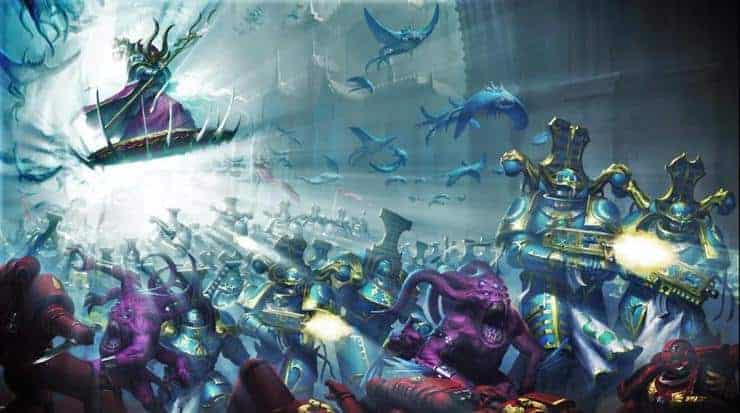
Why is Magnus Called “The Red”?
The nickname isn’t exactly subtle. Magnus was born with crimson skin that set him apart from the moment he arrived in the galaxy. His striking red hue, paired with his towering stature and fiery intellect, made him impossible to ignore. But his nickname isn’t just about appearance—it’s a symbol of his fiery nature and the passion he brought to everything, from his pursuit of forbidden knowledge to his loyalty to his Legion.
What Happens to Magnus the Red in 40k?
If there’s one word to describe Magnus’s life, it’s “tragic.” Originally loyal to the Emperor, Magnus became one of the most infamous figures in Warhammer 40k lore. His downfall began when he shattered the Emperor’s trust by using sorcery to warn him of Horus’s betrayal, inadvertently wrecking the Emperor’s Webway Project in the process. This led to the Burning of Prospero, a brutal assault by the Space Wolves that destroyed Magnus’s homeworld and pushed him to make a fateful decision.
In the aftermath, Magnus turned to Tzeentch, the Chaos God of Change, who offered him salvation. That “salvation” came with a catch: Magnus was transformed into a Daemon Primarch, forever tied to Chaos. Now, he serves as one of Tzeentch’s most powerful and tragic pawns, leading the Thousand Sons as part of the Chaos Space Marines.
Why Did Magnus the Red Betray the Emperor?
Betrayal is a tricky word when it comes to Magnus. Did he knowingly turn his back on the Emperor, or was he forced into it by circumstance? Magnus believed he was helping the Emperor when he broke a strict rule against sorcery to send his psychic warning about Horus. He wasn’t trying to rebel—he was trying to save the Imperium.
But the Emperor saw things differently. Magnus’s actions had catastrophic consequences, and the Emperor ordered his capture. Feeling abandoned and betrayed by his father, Magnus made the choice to turn to Tzeentch and the other Chaos Space Marines, who promised the power and understanding Magnus had long sought. What the Emperor saw as betrayal, Magnus saw as survival.
How Did Magnus the Red Lose His Eye?
Magnus’s iconic single eye isn’t just a fashion statement—it’s a reminder of the cost of his power. During his youth on Prospero, Magnus sought to master the Warp and bartered with a greater daemon of Tzeentch for forbidden knowledge. In exchange, he lost his right eye. This act wasn’t just about curiosity—it was a sign of his willingness to sacrifice anything, even a part of himself, to achieve his goals.
Wrapping Up Magnus the Red in Warhammer 40k
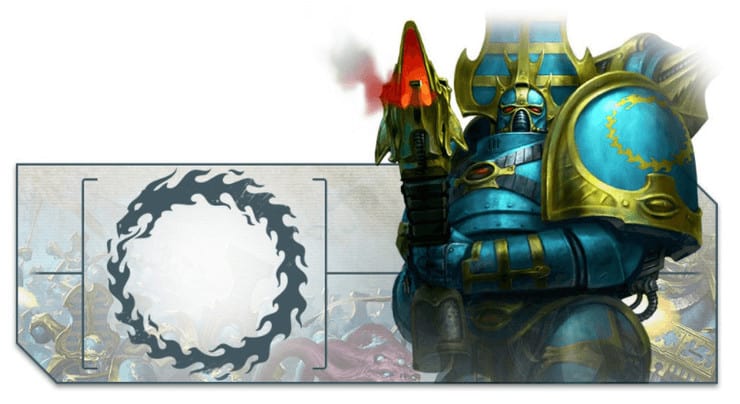
Warhammer 40k Factions Explained: A Complete Guide to Every Army
What do you think about the Thousand Sons, Chaos Space Marines, Tzeentch, and Magnus The Red in Warhammer 40k?

